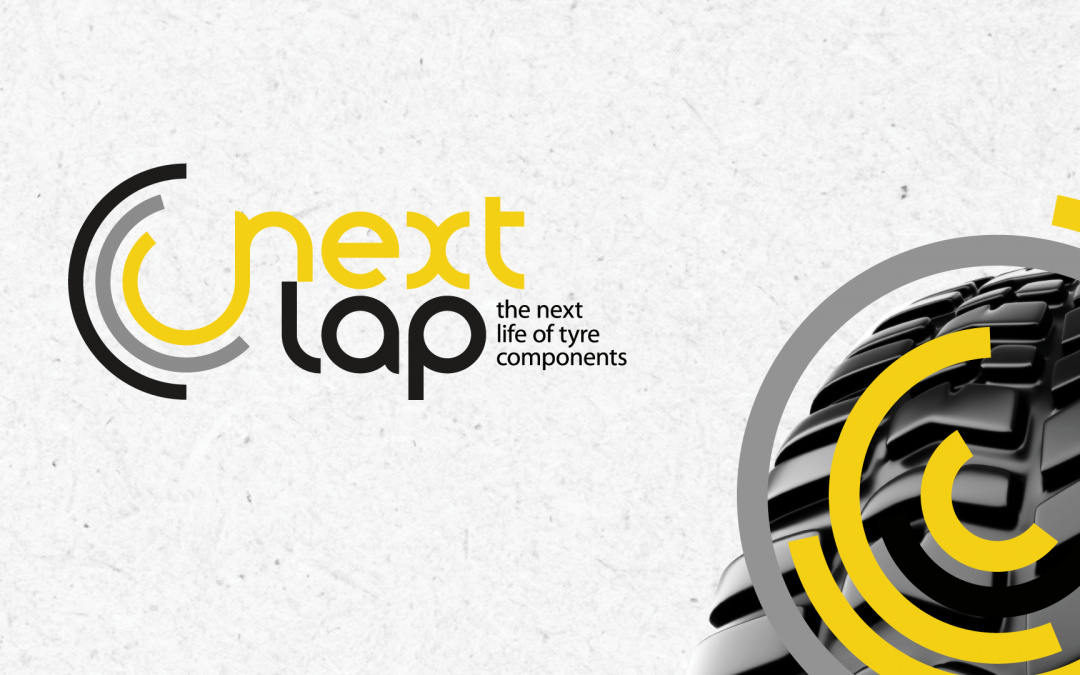
by cristina | Jun 25, 2021 | Corporates, Startups
NextLap is the open innovation program designed to give a new life to tyre components. Between September 2020 and May 2021, it joined innovators and industry partners to develop new solutions focused on the end-of-life tyres and its derived components – rubber, steel, and textile. And the results were truly rewarding!
NextLap is a program by Valorpneu and Genan, developed by Beta-i.
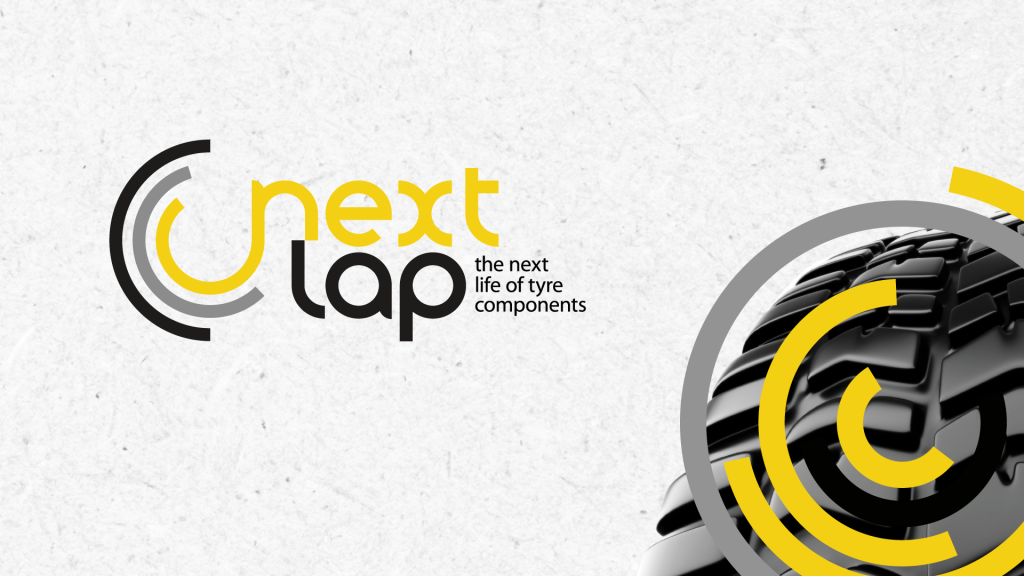
All about Sustainability
The Portuguese newspaper Jornal Económico has summed it up correctly: every year, around the world, over 30 million tons of tyres are discarded. Only in Portugal, we’re talking about 80 thousand tons, with 60% going to recycling and 40% to energy production. According to a study by Valorpneu, one of the main partners of NextLap, per each ton of recovered tyres, we’re avoiding about 1.3 tons of CO2 emissions and saving 37283 energy megajoules.
The most common usages of tyre rubber recovery are usually sports pavements, synthetic grass filling, isolation materials and concrete used in roads and airports. In the end, NextLap is all about sustainability and circular economy. Tyres go circular, always and forever.
Innovation road trip: finding new solutions…
In the end of its journey, NextLap gathered the final innovators and the program’s partners for a demo day, to show results of the work done between each other.
Two of the pilot projects developed during NextLap were the result of a collaboration between the worldwide known Decathlon and two of the innovators of the program: Rubberlink and Tintex, both from Portugal.
The innovators at Rubberlink have designed a devulcanized rubber solution that allowed Decathlon to create a shoe prototype with a recycled shoe sole.
Tintex, on the other hand, has used rubber powder to create the vamp of gymnastic shoes, a product to be tested also by Decathlon. This innovative solution is showing the never thought potential of this tyre material. Besides, Tintex is also considering reusing the textile material from tyres in bicycle saddles.
The program originated a total of five pilot projects.
Pavnext, also from Portugal, has developed an electric solution that reduces the speed of vehicles circulating within regions, covered by rubber made out of tyre recycling. Ruconbar, from Croatia, has presented a solution for acoustic barriers in trailways with rubber made out of tyre recycling.
… and Art
NextLap has taken tyre upcycling to a whole new level: Art.
“UNO” is a sculpture made out of derivatives from pieces of old tyres. This piece of art was made by Filippo Fiumani and João Mendonça (Luzíadas) with the curatorship of Departamento (Bruno Pereira). It gives a new life to materials that no longer have their original purpose.
“UNO” can be seen temporarily in Lisbon, by the docks, in Alcântara.
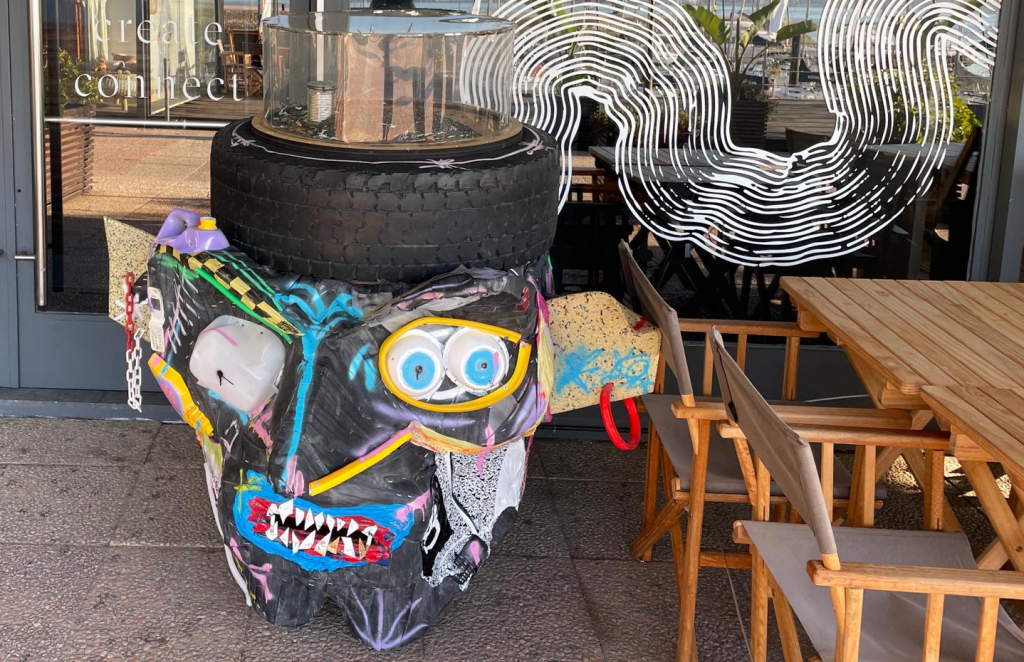
Designing the Future
José de Carvalho, Innovation Director at Genan, sums it right: “The goal of NextLap was to bring together innovators and industries and open the door for new solutions to turn into commercial circuits. The first objective was effectively achieved and, with the creation of the prototypes, it will be possible to evaluate all the inherent properties in order to enable the transition to mass production”
NextLap is just the first step of further collaborations. Innovators and partners have met, worked together and designed a new future for sustainability for the end-of-life tyres. We’re eager to see what the next lap will show.
Thank you!
______________
NextLap Partners
Main Partners: Valorpneu | Genan | Beta-i
Industry Partners: OPWAY | Pragosa | Mobinov | Decathlon | Extruplás | Procalçado | IP – Infraestruturas de Portugal | Houdini Sportswear

by cristina | May 26, 2021 | Corporates, Startups
Free Electrons 2021 Bootcamp is taking place this week, from May 24 to May 27. Four days for the selected startups to showcase their solutions and their teams through a fast-paced pitch event and participate in intense one-on-one meetings with the utilities. Out of hundreds of applications, these were the Bootcamp selected:

Apollo Power | Israel
Apollo Power is an innovation company in the field of Energy. We use our proprietary technology to produce a flexible, durable, lightweight solar film to solve different energy challenges in a new way, both on water, in the air, for infrastructure, or in the automotive industry.
Blixt | Sweden
BLIXT disrupts a 100-year-old industry replacing mechanical circuit breakers with smart digital devices. The Blixt Zero SSCB is x1000 faster, provides circuit level metering and remote real time control of power – all-in-one single device.
Bsurance | Austria
bsurance is a B2B2C, white-label insurtech company focusing on Embedded Insurance. The essence of our business model is to provide insurance to the customer the very moment it becomes relevant within the customer journey, inevitably connecting it to the product or service of their interest, without any interruption of their purchasing process.
Camus Energy | USA
Camus Energy is building an open source software platform to enable the future Distribution System Operator (DSO). Camus’ platform empowers industry leaders to safely and strategically manage a rapidly changing grid environment.
DABBEL – Automation Intelligence | Germany
The DABBEL AI is a pure software solution that replaces the manual control of the existing Building Management Systems in commercial buildings with Artificial Intelligence.
Duckt | Estonia
Duckt, is a universal micromobility infrastructure solution. You can dock, lock and charge any vehicle in one spot, easy to scale and adaptable with your urban mobility needs.
Electron (UK) | United Kingdom
Electron’s solution is a configurable platform for local flexibility markets. Our software enables companies such as network utilities, municipal suppliers and others to launch and operate markets, communicate with distributed energy resources through price signals, and optimize their combined use of renewable generation or network capacity.
Eliq AB | Sweden
Eliq is the SaaS platform that enables energy companies to deploy applications that help end-customers better understand and manage their energy usage and accelerate their participation in the energy transition.
eSmart Systems | Norway
Our flagship product Grid Vision – an AI-assisted, end-to-end powerline inspection management tool – was first released in 2016 and is currently in use by more than 30 utilities in Europe and the US.
Exceedence | Ireland
Exceedence is an Irish SME that provides renewable energy financial modelling software and consultancy with particular expertise in marine and offshore renewables.
Exeri | Sweden
Smart Grid SurveillanceTM (SGS) is Exeri’s comprehensive system that enables real-time situational awareness and decision support for the distribution grid.
FiberSense | Australia
We sensorise existing installed Fiber Optic cables (usually telco fiber in cities, or for subsea High Voltage lines dark fiber installed along the cable, for overhead OPGW fiber is usually already available).
FSIGHT – Energy Flows | Israel
State-of-the-art artificial intelligence software solutions for the energy market. FSIGHT’s AI technology platform is specifically built to take advantage of the new decentralized energy market and smart metering data to increase revenues and reduce costs.
Gilytics | Switzerland
Gilytics delivers a Cloud GIS-based platform and service solution allowing users to calculate alternative routes for power lines, pipelines, roads, and railways, helping energy, engineering and transport companies save time, money and CO2 with better data, visuals, and communication to grow.
Go To-U | USA
GO TO-U is a platform for electric vehicle (EV) charging management and operations. Our proprietary software technology enables charge point operators to drive 2x higher utilization of charging locations, enhancing EV drivers’ satisfaction and loyalty.
GreenValley International USA | USA
The company provides a wide-range of advanced aerial,terrestrial, and mobile LiDAR survey and mapping hardware systems as well as cutting edge software and service solutions.
Gridcognition | Australia
Creates a sophisticated digital twin of your existing and future energy projects, running thousands of simulations in a single click, optimising technology & commercial decisions across far more variables than was previously possible, to drive the best possible environmental and financial outcomes.
gridX | Germany
gridX uses edge and cloud services to develop digital solutions for smart charging and energy management to make renewable energy accessible to all, independent of manufacturers.
HyBird | United Kingdom
Through its unique 3D reality models, AI algorithms, and workflow integration, Clarity delivers benefits in business continuity, knowledge management, cost reduction, remote cooperation, and digital transformation.
KelTech IoT | Ireland
Our Dual Distributed Network (DDN) solution optimises the deployment of communication networks by combining electricity and fibre in an ‘all-digital’ solution using Digital Electricity.
LiveEO Berlin | Germany
LiveEO applies tailor made machine learning algorithms to satellite and aerial imagery in order to assess the vegetation risk alongside TSO & DSO networks globally.
Liight App | Spain
Liight incentivises users to adopt sustainable habits like walking, cycling or recycling through gamification, smart-city mechanisms and artificial intelligence.
Measurable.energy | United Kingdom
The measurable.energy (m.e) Platform is the ultimate building control, automation and management system to eliminate wasted electricity and Greenhouse Gas (GHG) emissions.
Nuventura | Germany
Nuventura develops sustainable gas insulated switchgear (GIS) for medium voltage (MV) electricity grids.
Plexigrid | Sweden
Plexigrid develops network management platforms for DSOs and distributed resources management platforms for retailers and aggregators.
Prescinto Technologies Pvt Ltd | India
Prescinto’s AI-powered SaaS platform collects solar plant data, applies data science models to identify causes for underperformance, and suggests work orders to increase power generation.
PROXXI | Canada
Proxxi is a smart sensor that protects workers by sensing when they get too close to an electrified device.
REBASE Energy | Sweden
Rebase Energy provides data and digital tools for forecasting, optimisation and trading of weather-dependent distributed energy resources.
Social Energy SE Group | United Kingdom
Our Artificial Intelligence and predictive analytics make profit from the growing number of prosumers and renewable energy assets on the grid.
SubSea Mechatronics | Spain
Over the years, we have developed pipe-inspection services with ROVs and AUVs and their maintenance and repair together with IoT for water applications, besides a range of underwater inspection products.
Tacit.io | USA
An integrated solution that is designed to provide field employees in industries such as Power/Utilities, AEC/ Construction, Industrial Equipment and Oil/Gas and others an integrated experience for real-time collaboration, knowledge management and to leverage remote experts who can better help them get their job done.
VECKTA | USA
VECKTA is the Energy Transition Market Platform, empowering a more sustainable, profitable and distributed energy future.
Voltaware Europe | United Kingdom
Voltaware is a London-based startup using smart meter data to create game changing products that help utilities engage customers and generate new revenue streams.
Yotta Energy | USA
Yotta Energy (Yotta) has created the first panel-level energy storage solution that fits perfectly behind any industry standard solar module, neatly integrating into PV racking.
Zinier | USA
Low-code Field Service Automation Platform, powered by AI. We empower field service organizations to reach their full potential, delivering always-on service, while future-proofing for the unexpected.
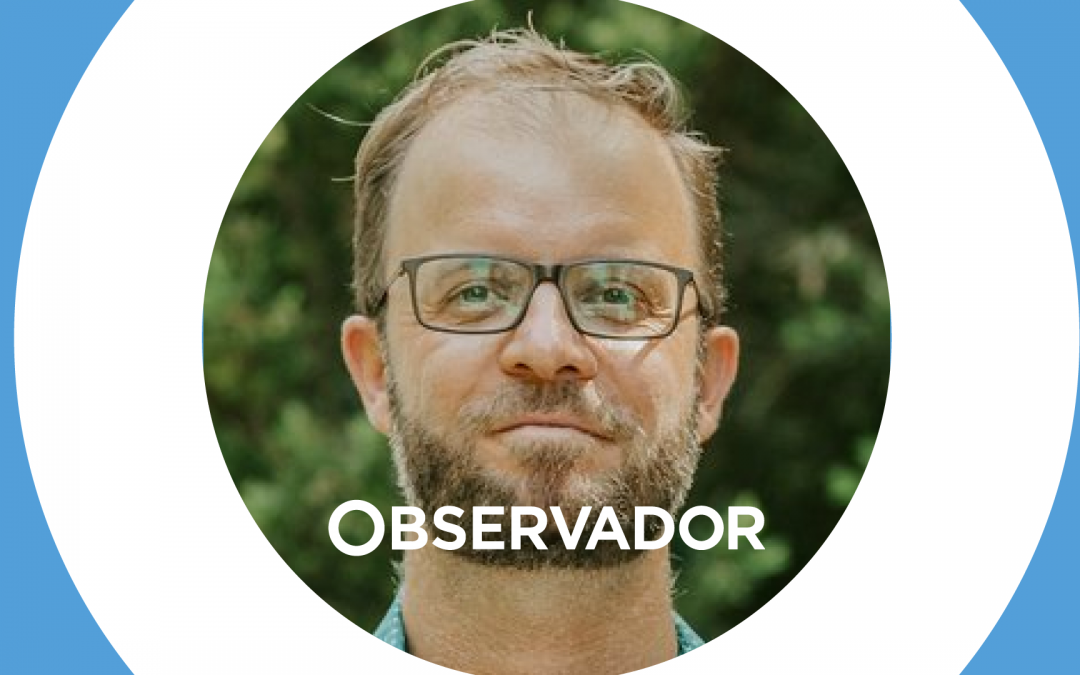
by cristina | May 25, 2021 | Featured
by Alisson Ávila* | Originally posted in Observador
We are all thinking, feeling, and talking about the pandemic and its impacts from different angles. Whether in the context of work relationships, family dynamics, (un)trust in institutions, or hope for the future, several studies point to an impact of a similar level to that of World War II, with the difference that this isn’t a “war” that ends at a specific time and, the next day, we move on to reconstruction works.
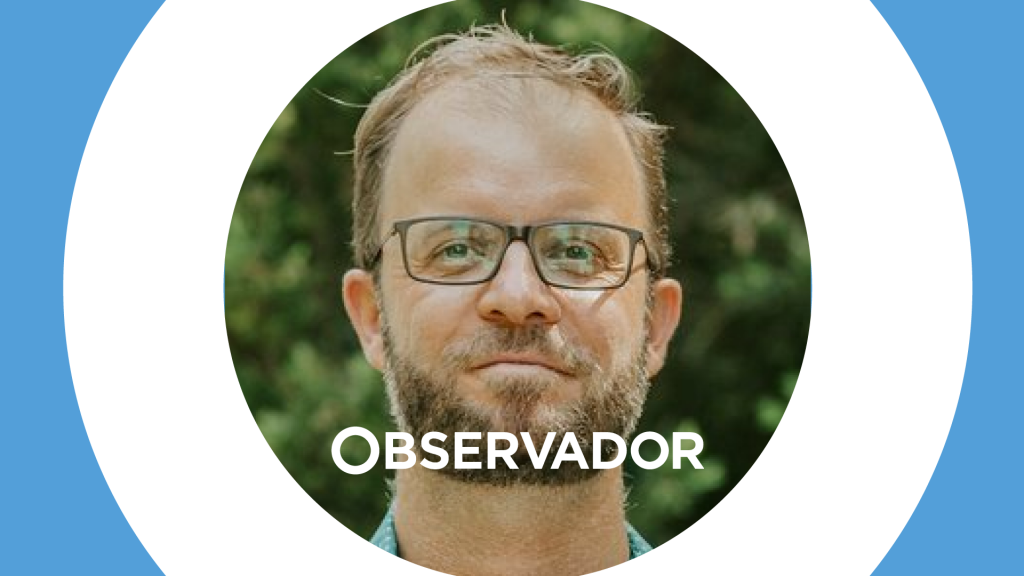
For example, the recently published 2021 Financing for Sustainable Development Report of the United Nations Inter-Agency Task Force on Financing for Development alerts us for a “lost decade” in terms of development, where the differences between rich and poor will further widen with strong socioeconomic consequences. On the other hand, Europe’s main stock exchanges are following their upward path, confident of a recovery following the gigantic investment of Horizon Europe – and above all, in the belief of economists that, after the massive vaccination, we’ll return to restaurants, shops and airports to consume and travel as if there was no tomorrow – and as if, in general, adult and economically active Europeans were more spenders than “savers.”
We’ll likely want to spend even more than what we have, to celebrate the return to the streets and thereby cause a mega-injection of capital into the economy. But should we do this in the post-pandemic time? Will it make sense to resume all our consumption habits, despite the unquestionable pleasure they provide, if we’re aware that the control of pollution, waste, and extraction of raw materials is also our responsibility? It is only through non-consumption attitudes that different industries will be forced to innovate and reinvent themselves and that several green and digital transition goals will be achieved in an effective and structuring way.
A year ago, when confinement started around the world, preliminary data collected by the European Space Agency (ESA) suggested that the reduction of mobility and fossil fuel consumption would have an almost immediate impact on air pollution in larger cities. However, just a few more months of Covid-19 were enough for new evidence to raise doubts about the permanence of this scenario – thus, indicating the obvious: decreasing systematic pollution levels involves much more than a hypothetically locked-at-home society. In 2020, three-quarters of the world’s countries registered the presence of microparticle levels in the air above the maximum recommendations, despite the significant drop in polluting activities, according to a report by Swiss company IQAir and Greenpeace. And in the United States, figures from the University of Delaware show that the average level of pollutants in the North American atmosphere has recovered in late 2020 and is increasing again – and will continue to grow when our mobility and the transport sector as a whole return to normal.
When it comes to our daily reality, the masks we find on the street, watercourses and beaches, or their disposal in inappropriate boxes are just “small examples” that still call our attention, as they are new to the eye. Meanwhile, all the other residues from our consumption track record are definitely becoming a sort of “landscape”, or are simply invisible. When we see the unquestionable growth of robust transportation packaging usage due to the e-commerce explosion during the pandemic, or the microplastics rain detected in the skies of California, it seems that the only sense still capable of reacting to our “old normal” is the sense of smell. Attributing nauseating odours to the rich material still not managed to recycle could be a good idea, by nudging our reaction towards a circular economy.
Anyway, our responsibility is key: it is the sum of our improved personal behaviours, alongside less, non-consumption decisions that will create a scale for change within society. By doing so, we might create the best available pressure to encourage more economic agents to move beyond environmental awareness and discourse to enter the action phase: the real innovation moment. Fortunately, tangible sustainability practices beyond any greenwashing empty discourse are growing on a dizzying scale in Portugal. Companies, startups, research centres, and public authorities are working together to innovate in a collaborative way – the only approach capable of generating any systemic impact. Examples are innovation programs such as NextLap, led by the Portuguese company Valorpneu alongside the largest tire recycler in the world, the Danish company Genan, which is developing pilots alongside startups and players in the industry to give new life to tires: according to data from the WBCSD (World Business Council for Sustainable Development) from December 2019, more than 30 million tonnes of end-of-life tires are discarded worldwide each year, generating a polluting and toxic liability for which Europe is responsible for around 10% of this total. In its turn, the pilot projects developed under the Bluetech program, led by the Portuguese Ministry of the Sea with the Luso-American Development Foundation (FLAD), envision tens of thousands of tons of carbon dioxide reducing in the country’s main ports, as pointed out in its impact report.
And the examples keep coming. The Smart Open Lisboa platform, from Lisbon’s City Council, is currently selecting startups from around the world to develop joint projects alongside large companies from the private sector related to their vertical for the Green Economy. And Sociedade Ponto Verde, the Portuguese organization that collects, recovers, and recycles non-reusable packaging waste from the past 25 years, recently launched the Re_Source program, based on a global call for solutions to increase the circularity of glass, aluminium, and plastic packaging. The program has also the goal of raising awareness for a change in what should be the simplest of our attitudes: correct separation and disposal of waste.
Although we are all looking forward to celebrating life and socializing on the streets and in other geographies (very rightfully so, by the way) it’s the near future that will mark the moment of truth in our commitment to sustainability. Are we really going to confront our past behaviours with the next choices we must undertake henceforth? Such shift is the definitive push for a redesign of production processes, value chains, and distribution in the economic system. Call it social pressure, consumer trends, or consumer insight: as long as it’s felt in the PNL results from those who haven’t changed yet, we’ll increase the chance of getting an adequate response for the sake of our descendants.
Not to mention, obviously, our planet itself and its natural order: this is all about less ego and more eco. So wave goodbye to anthropocentrism and say hello to biocentrism – the belief, and the pieces of scientific evidence, that all forms of life are important and inter-connected within a network where we are not the only and very special ones.
It will demand hard work indeed, but it will also give us a future – no greenwashing narrative involved. And it might sound like, but no naivety, too: it was good to keep up with the Leaders Summit for Climate valuable and necessary commitments these days. But it was even greater to check the necessary provocation from her again, Greta Thunberg right before the event’s opening with an open call to action to cut the bullshit. Shouldn’t we focus on smart Degrowth?
Lisbon, May 2021
(article originally published in Portuguese at Observador online newspaper – April 2021)
* Alisson Avila, Co-Founder, Communication & Knowledge Principal, Beta-i
alisson.avila@beta-i.com

by cristina | May 25, 2021 | Featured
by Maria Raimundo* | originally published in Observador
Despite the pandemic having brought unprecedented challenges, healthcare systems that already prioritized data-centric strategies and patients were better prepared to respond to the outbreak. Soon, they managed to adapt patient care and emergency planning according to these changes and according to the identification of patients at greater risk of contracting Covid-19. Embracing advances in population risk stratification and risk monitoring allows us to be better equipped to prevent disease and promote health, elements that are fundamental to public health and the sustainability of national healthcare systems. Genetics allows us to better understand health correlations, disease risk, and patterns of population groups to assess public health in general. Thus, population genetics initiatives are needed to prevent new incidences of public health risk, stratify population risk, and proactively protect the population. All in all, genetics has the potential to revolutionize current healthcare systems!

Health data began to have economic value across the healthcare ecosystem, especially in the field of genetics and in the pharmaceutical industry, while being seen as a strategy with potential. Population genetics has become intriguing, with genetic data being mostly considered to help predict, diagnose and treat the health of individuals in a more personalized and tailored manner. Strategies guided by genetics can decrease the risk of disease incidence, improve the adoption of healthy behaviors, as well as trigger early detection of diseases and more targeted treatment options. The collection of genetic data and more general health data began as isolated initiatives, whether in hospital laboratories, companies, or others. At the moment, several countries are establishing population data collection initiatives for the future implementation of personalized medicine in daily clinical care.
In the last two decades, large-scale projects have been implemented across Europe, as is the case of the European ‘1+ Million Genomes’ initiative. A partnership of 24 European countries, which are aiming to sequence at least one million genomes to provide access to the resulting genetic database by 2022. This collection has the potential to improve disease prevention, allow more personalized treatments, and provide innovative and impactful research. In addition, European countries like Estonia and the United Kingdom are pioneers in the collection and management of large amounts of genetic data, to implement improved public health efforts with a focus on preventive health measures.
Such initiatives require appropriate technical infrastructure, clear legal and ethical implications, as well as education for both citizens and policymakers, to ensure acceptance and successful integration of personalized medicine into national healthcare systems. Population genetics provides an opportunity to develop more personalized and targeted drugs, therapies, and interventions. In addition, it can also open doors for better diagnostics, prevention awareness, and more efficient use of existing resources. From cancer to rare diseases, to neurological diseases, to new outbreaks and prevention, genetics can vastly improve citizens’ health. It has the potential to improve the efficiency, accessibility, sustainability, and resilience of healthcare systems.
Consequently, there is a need for an initiative to collect and aggregate genetic data at a national level in Portugal. Such an initiative would not only encourage innovative research but would also promote innovation in the pharmaceutical industry. Besides, it would be possible to adapt public health strategies according to the identified population risks and to adapt the education of future healthcare professionals. The progress of the Portuguese national healthcare system shows that it is possible to achieve such an initiative at a population level, especially with the efforts being made with the implementation of the Recovery and Resilience Plan for 2021-2026. We must use the current pandemic crisis to embrace healthcare transformation and position Portugal at the forefront of healthcare innovation at the European level. More crises will come and we will want to be better prepared, not only regarding the implementation of digital health solutions and innovative healthcare equipment but mainly in preventing the risk of the entire population.
Lisbon, April 2021
(article originally published in Portuguese at Observador online newspaper – April 2021)
* Maria Raimundo is Senior Account Manager – Healthcare & AgroFoods AT BETA-I
and part of the community Global Shapers Lisbon Hub
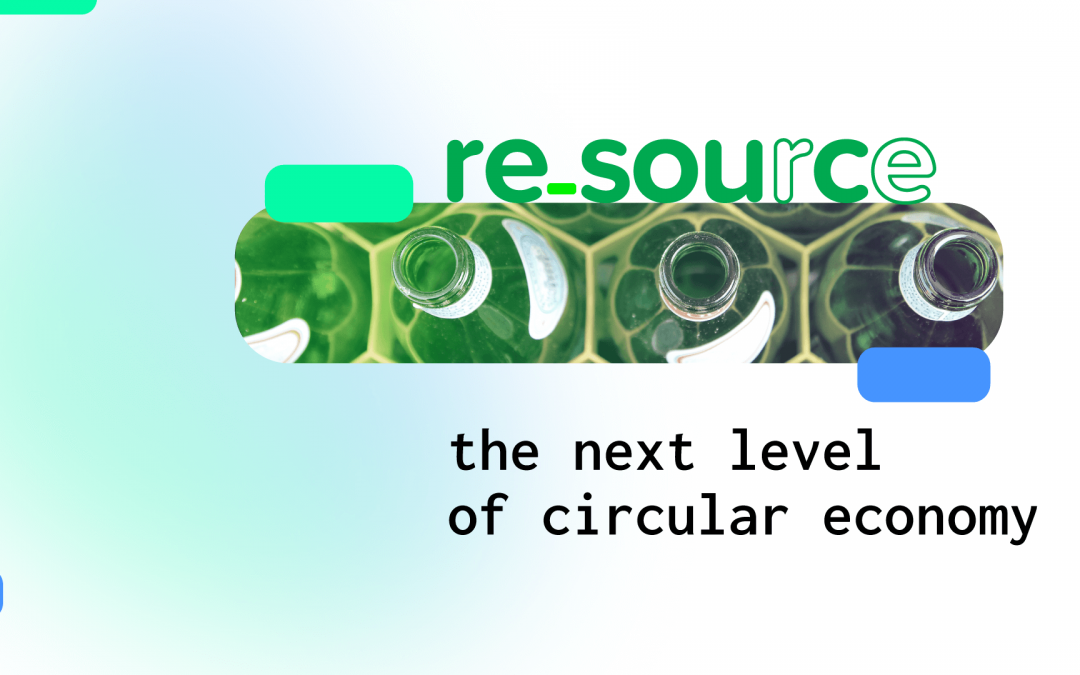
by cristina | May 7, 2021 | Corporates, Startups
re_source is the digital open innovation program by Sociedade Ponto Verde, focused on circular economy and digital disruption of packaging waste.
Being a Portuguese waste packaging management body whose mission is to manage the “take-back and recovery” of packaging, Sociedade Ponto Verde has brought re_source, in partnership with Beta-i, to bring new insights, technologies and scalable innovations to the packaging waste sector.
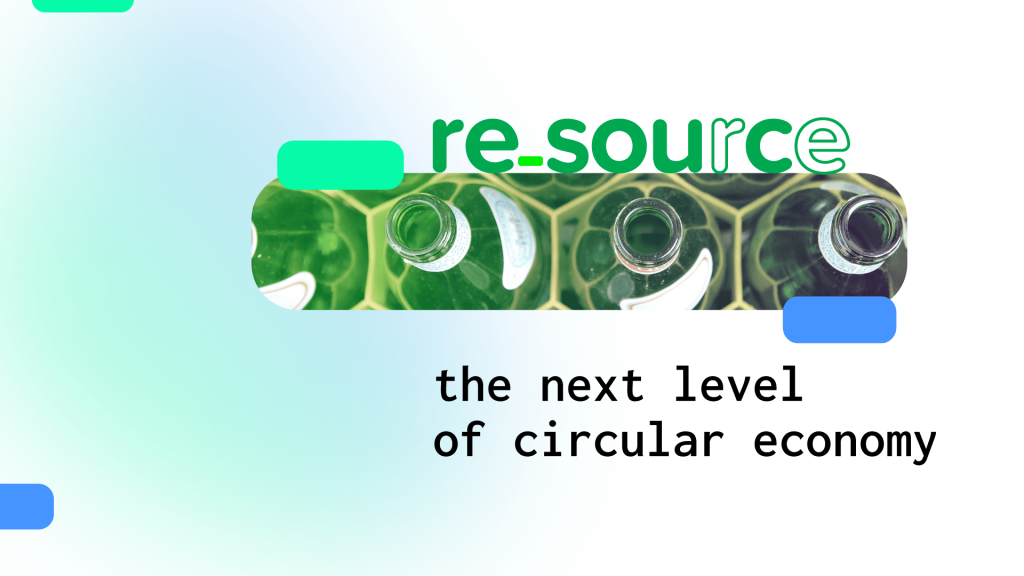
re_source is the way for international startups and innovators to develop, together and in collaboration with the pilot partners, the most innovative solutions to address challenges in this industry.
And who are these brave partners with whom the startups will work with, you ask? We answer – and you may find more about them in re_source’s website.
We have already 13 green rockstars in the source of innovation:
(re_source can still have more, though. If you’d like to join as a pilot partner, contact the team here)
The Municipality of Mafra mission is to plan, organise and implement policies that promote inclusive, smart and environmentally sustainable growth of the territory. The idea is to boost innovation and digital transformation, aimed at creating well-being for the citizens and generating value for investors.
- Cascais Ambiente
Cascais Ambiente is responsible for the urban cleaning and waste collection services in Cascais and is responsible for managing urban green public spaces, gambling and recreation, natural resource management and the coastline. https://ambiente.cascais.pt/
Manufactures recycled paper for corrugated cardboard. It has four lines of business: manufacturing of recycled paper for corrugated paper (Saica Paper), waste management and environmental services (Saica Natur), production of corrugated paper packaging (Saica Pack) and flexible packaging (Saica Flex).
Mail delivery service, both physically and digitally. Also includes services such as savings management, credits and insurance. Its mission is to foster innovation and forge relationships built on trust, through proximity and excellence, connecting both people and companies.
Manages, recovers, and treats the municipal waste produced in eight municipalities of the Greater Porto Area, in Portugal. Every year, it treats around 500,000 tons of municipal waste, promoting the adoption of integrated systems and the minimization of waste disposal in landfills. Four core areas of strategy: Multi-material Recovery, Organic Recovery, and Energy Recovery.
Leader in the production and commercialisation of disposable aluminium packaging for more than 40 years. Develops its activity in: cash & carries, food industry, patisseries/bakeries, catering and take away industries, including stores and supermarket chains.
Swiss multinational food and drink processing conglomerate corporation, present for over 150 years now. Nestlé unlocks the power of food to enhance the quality of life for everyone, today and for generations to come.
Urban hotel with a sustainable tourism concept, certified according to standards ISO 9001, 14001, and 45001, and the Green Key certification. Open since 2011, it has also won the We Care and We Share seals from the AHP, the Green Project Award, and the Zero Carbon Certification.
Projects, produces and commercializes a complete set of solutions for temporary waste containerization and related services. As the Iberian market leader of recycling containers, it has approximately 200 thousand units of its star product, CYCLEA, installed.
Founded in 1934 as a major beer seller company. Nowadays part of the Heineken company, SCC is a leading company in terms of innovation in the drinks market, and aware of its potential as a driving force for growth and development.
Major Portuguese soft drinks company with a multi-brand, multi-market strategy, whose core business is based on its operations in the Beer and Bottled water businesses. Includes soft drinks, wines, malt production and marketing and tourism.
Municipal Solid Waste Management (MSWM) company. Responsible for integrated management of municipal solid waste produced in the municipalities of Cascais, Mafra, Oeiras and Sintra, in Portugal.
Vidrala (founded in 1965) produces glass containers for a wide range of food and beverage products. It is the 4th largest manufacturer in Western Europe, with eight complementary production centers located in different countries (Spain, Portugal, Italy and UK) and around 3500 employees.
It’s very exciting to have all these pilot partners on board.
The selected startups and innovators will be able to work together with a varied range of experts to disrupt the packaging waste system. Startups and innovators can apply to re_source until May 16, 2021.











